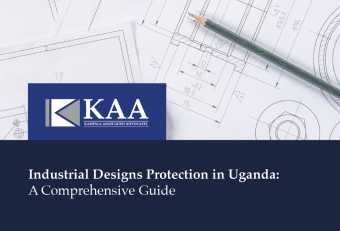Uganda has been credited as one of the countries that have controlled the spread of the Covid-19 pandemic without a single death recorded. The tools used have included prohibition of mass gatherings, restrictions on travel and other public events.
Ugandans express their will and consent on who shall govern them and how they shall be governed, through regular, free and fair elections. These elections covering Presidential, Parliamentary and Local Government Councils must constitutionally be held within the first 30 days of the last 122 days of the expiry of the term of Office of the President. The current term of office for all elected leaders expires on 12th May 2021.
The December 2018 EC Roadmap was disrupted by the Covid-19 pandemic. It had covered the demarcation of Constituencies, reorganization of polling stations, update and display of National Voter Register, nomination of candidates, campaigns and polls. The Roadmap considered the over 1,500,000 elective positions which require a number of variations for the production of ballot papers and other polling forms, and with campaigns expected to end by 10thJanuary 2021, campaigns were intended to commence by the last week of July 2020. By the time the Covid-19 health protocols were put in place, the EC was already implementing the preliminary activities under the Roadmap for the 2020/2021 General Elections.
The EC revised Roadmap following the partial lifting of the country wide lockdown, has strategically utilized the time left to ensure that elections are still carried out but within the safety guidelines, that are effective and inclusive. Accordingly political parties are to identify their flag bearers by 21st July, 2020, nominations by 3rd November, 2020 while digital campaigns are set to commence on 20th October, 2020 for parliamentary elections and on 10th November, 2020 for presidential elections. The polling period remains unchanged and set for 10th January to 8th February, 2020.
The Electoral Commission has therefore put in place an electoral roadmap which will ensure that elections are held in accordance with the Constitution. The alternative would have been for the President to declare a State of Emergency, during which parliament would extend its term for periods of 6 months at a time. There is no express provision for extension of the presidential term.
It follows that where an emergency has prevented a normal election from being held, then both presidential and parliamentary elections cannot be held. The office of the President becomes vacant after 5 years from the date he assumed office but this applies to Parliament as well. The intention under Articles 77(4) and 110 was that all organs of government continue even under an emergency where Parliament has extended its term because normal elections cannot be held. The constitution does not expressly provide for a situation where a presidential election simply cannot be held. Article 109 provides for only situations where the President is not able to perform functions. There would be a vacuum where Parliament continues by its proclamation without an Executive in place. It would not serve the continuation for Parliament to extend its term when there is no executive in place. That vacuum cannot have been intended by the framers of the constitution. In any case the operationalization of Article 110 requires the existence of a President.
With the Health protocols in place side by side with the revised EC Roadmap, there is no need to trigger a Constitutional crisis by declaring a State of Emergency when no such emergency exists. The revised road map for the 2020/2021 General Elections ensures the participation of all Ugandans in the poll within equal opportunity and to vote in a healthy and safe environment.
It therefore goes without saying that the Covid-19 pandemic has not created an emergency which would trigger the need to suspend people’s right to vote and chose their representatives in government. The difference between the initial roadmap and the revised is that timelines have been shortened and campaigns will be digital as opposed to holding mass gatherings. The Voting rights of citizens are sacrosanct and should not be tampered with by declaring a State of Emergency where none exists.


